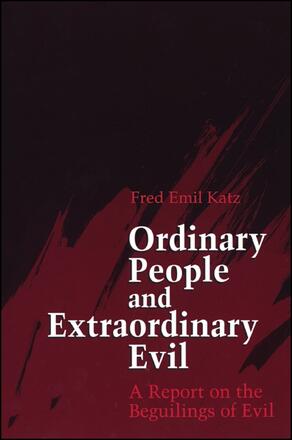
Ordinary People and Extraordinary Evil
A Report on the Beguilings of Evil
Alternative formats available from:
Description
What is it in the behavioral makeup of ordinary people, operating in the course of ordinary daily living, that lends itself to participating in horrendous activities — and doing so at times with zeal, at times with joy, at times without duress? Katz demonstrates that we do not need any special behavioral equipment for doing evil. The very same behaviors can take us in both directions for either living humanely and decently or for doing evil. This book demonstrates how some of these processes work, and sensitizes us to the potential for evil in our ongoing daily activities. This knowledge about ordinary behavior can empower us to take charge of our own direction, and help us turn away from beguilings of evil when they come our way.
Fred Emil Katz is Professor of Sociology, and has taught at various universities in the United States and Israel, including the State University of New York at Buffalo and Tel Aviv University.
Reviews
"A worthy contribution to Holocaust literature: superb, dispassionate analysis of the roots of evil, perpetrated most often in lockstep with the culture that encourages and reinforces it." — Kirkus Discoveries
"The most interesting part of this book for me as a student of the Holocaust is the use of sociological categories to interpret the actions of the perpetrators and to a lesser extent the bystanders and the victims. In essence, Katz probes Hannah Arendt's theory of the banality of evil with precision and from a sociological perspective. The behavior of the perpetrators during the Holocaust is of enduring interest. The time is ripe for a re-evaluation of Arendt's controversial thesis and Katz's work provides such an opportunity. He also forces the reader to examine parallels to the Holocaust at least in terms of human experience." — Michael Berenbaum, Project Director, United States Holocaust Memorial Museum
"I felt privileged to read this book. It is provocative. I questioned some places, but the questioning pushes me to think about new kinds of evidence worth examining, and that is a real plus in this book. It offers stimulating insights, and it stimulates thoughts about the next research steps. The topic is very significant, important in itself, important (I think) to Holocaust studies, the sociology of everyday life, and perhaps to many areas that the book touches on (the sociology of organizations, applied ethics, family sociology, and others)." — Paul C. Rosenblatt, University of Minnesota, St. Paul